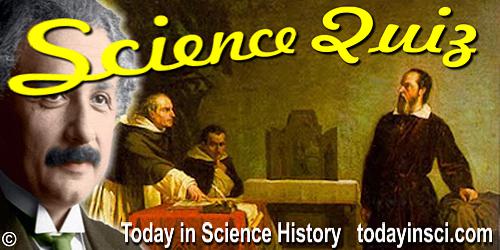Science Quiz - Quotations
This is a self-grading quiz. Pick whichever questions interest you.
Answers open in a new page (or tab) with more information.
Then come back to this page to try some more.
Have fun, whether you know the answer, or just guess, you'll learn more about the subject in the question.
Please send “Feedback” on how you like this kind of quiz.
Today in Science History - Quickie Quiz
Today in Science History - Quickie Quiz
Today in Science History - Quickie Quiz
Today in Science History - Quickie Quiz
Today in Science History - Quickie Quiz
Today in Science History - Quickie Quiz
Today in Science History - Quickie Quiz
Today in Science History - Quickie Quiz
Today in Science History - Quickie Quiz
Today in Science History - Quickie Quiz
Today in Science History - Quickie Quiz
Today in Science History - Quickie Quiz
Today in Science History - Quickie Quiz
Today in Science History - Quickie Quiz
Today in Science History - Quickie Quiz
Today in Science History - Quickie Quiz
Today in Science History - Quickie Quiz
Today in Science History - Quickie Quiz
Today in Science History - Quickie Quiz
Today in Science History - Quickie Quiz
Today in Science History - Quickie Quiz





